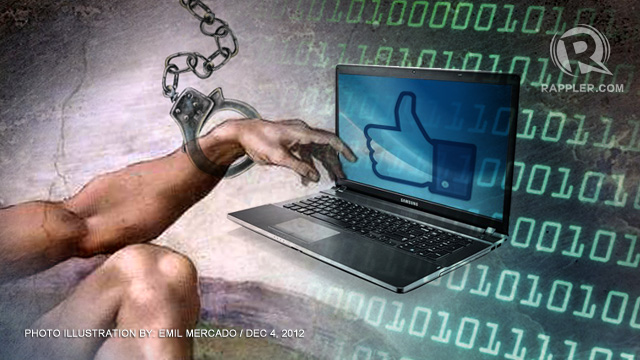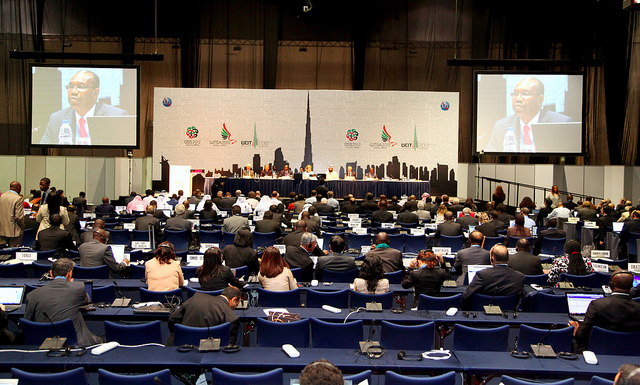SUMMARY
This is AI generated summarization, which may have errors. For context, always refer to the full article.

On Monday, December 3, I noticed a blog entry by Vint Cerf on Google’s official blog. Vint Cerf is one of a number of individuals responsible for developing the Internet as we know it today, and in his short post, he outlined the importance of the Internet, the International Telecommunications Union’s (ITU) potential threat to its freedom and openness, and what people around the world can do to make their voices heard.
I had considered writing a news article about his post with a short background on the World Conference on International Telecommunications (WCIT). I then did some more reading on the matter, and had a good moment of reflection on the implications of a regulated Internet.
I changed my mind after that quick thought experiment. An Internet devoid of freedom and openness has far-reaching implications that impacts everyone, and while local issues are important, as a technology writer I found myself compelled to make my voice, and this issue, heard.
The ITU and you
The Verge explains that the ITU is a body that predates the telephone and the United Nations. It is comprised of “193 countries and around 700 companies and research institutions, who develop treaties and set technical standards and goals for developing communications networks worldwide.”
That is all well and good, for the most part. Creating technical standards that allow the whole of the Internet to function well and propagate is an excellent goal. Contrary to the aspect of growing the Internet, however, is the alleged intent of this year’s WCIT.
The problem arises when some of the governments comprising the ITU want to change the worldwide treaties to try and seize the Internet’s backbone and use it as the stock for a mushy, rather than souped-up, kind of Internet. This can happen at the WCIT, behind closed doors, and with no one outside able to really know what they’re discussing.
In a world where openness and transparency is becoming more commonplace, closed doors bring cause for concern. Much like the fear some governments have for openness and transparency, Internet users have a fear of entities keeping mum.

The shifting ways
Much like the printing press, the Internet has created a shift in the way things work in the world.
It provides people with means to alternative education, forms of entertainment, and modes of expression. With a free and open Internet, people with access to it can train themselves in skills they never would have been able to pay for otherwise.
Performers around the world can become a creator of content and not simply a passive consumer. Those who have an opinion, whether they agree with established wisdoms or not, have a way of making their ideas known.
Of course, the Internet is also prime fodder for attempts at control on various scales. There is a decidedly criminal underworld that exists on the Internet that works to steal identities, hack sites, and otherwise perform paid malice online. At the same time, there are also gray areas related to Internet connectivity that need to be thought about, such as the nature of copyrights online and end-user piracy.
While the Internet isn’t perfect, presidents and pontifexes are realizing its value as a tool for communicating ideas about as quickly as dissidents and militants are prone to using it to counter propaganda or organize actions against bodies.
Moreover, the Internet has its own brand of electronic activists, and they appear to hack entities that seek to stifle the flow of information, as well as help ensure that people can maintain a voice.
The thought experiment
If you’ve noticed, I’ve made no distinction between the Internet as the network of connected computers and the World Wide Web: the webpages, apps, and other frameworks used to make information available. This is because the Internet and the Web are nearly indistinguishable these days in the minds of people.
The thought experiment I dreamt up was relatively simple: I imagined what would happen if my favorite thing on the Internet became restricted or otherwise policed.
In this case, my favorite thing on the Internet is blogging, whether it be discussing games on my personal blog or talking shop on the Twitter microblogging service. If blogging of any sort became heavily policed by a company or government, the constructed reality online as it relates to the discussion of topics like the review of a game would change severely.
If I became unable to criticize a game company for monetizing the fun out of its game, I would lose the very thing that made the Internet worthwhile to me, and without that sense of purpose, the Internet for me becomes a lifeless husk.
If your favorite thing on the Internet is the access to free learning, or the shot at becoming famous, or even just the security of having cheap connectivity in your pocket, and that was taken from you, what would you feel?
Land of the free, home of the brave
The difference between a government or company fearful of criticism and an individual Internet user fearful of regulation is that the individual is more likely to demonstrate the strength hiding behind perceived weaknesses as a collective.
Despite a statement by UN Secretary-General Ban Ki-Moon about how the WCIT is there to help bridge the digital divide by providing access to “the two-thirds of the world’s population currently not online,” it is the fear of world regulation that makes people pause, especially since only selected sessions of the WCIT will be shown online.
As Vint Cerf noted in a post on CNN on November 30, “The ITU is bringing together regulators from around the world to renegotiate a decades-old treaty that was focused on basic telecommunications, not the Internet. Some proposals leaked to the WICITLeaks website from participating states could permit governments to justify censorship of legitimate speech — or even justify cutting off Internet access by reference to amendments to the International Telecommunications Regulations (ITRs).”
Because we are not there, and because our interests as users are not represented in the discussions, we are ill at ease. That’s why people are signing up on Google’s Free and Open Web initiative: because the Internet is the virtual land of the free and the home of the brave, and we would like to keep it that way. – Rappler.com
Add a comment
How does this make you feel?
There are no comments yet. Add your comment to start the conversation.